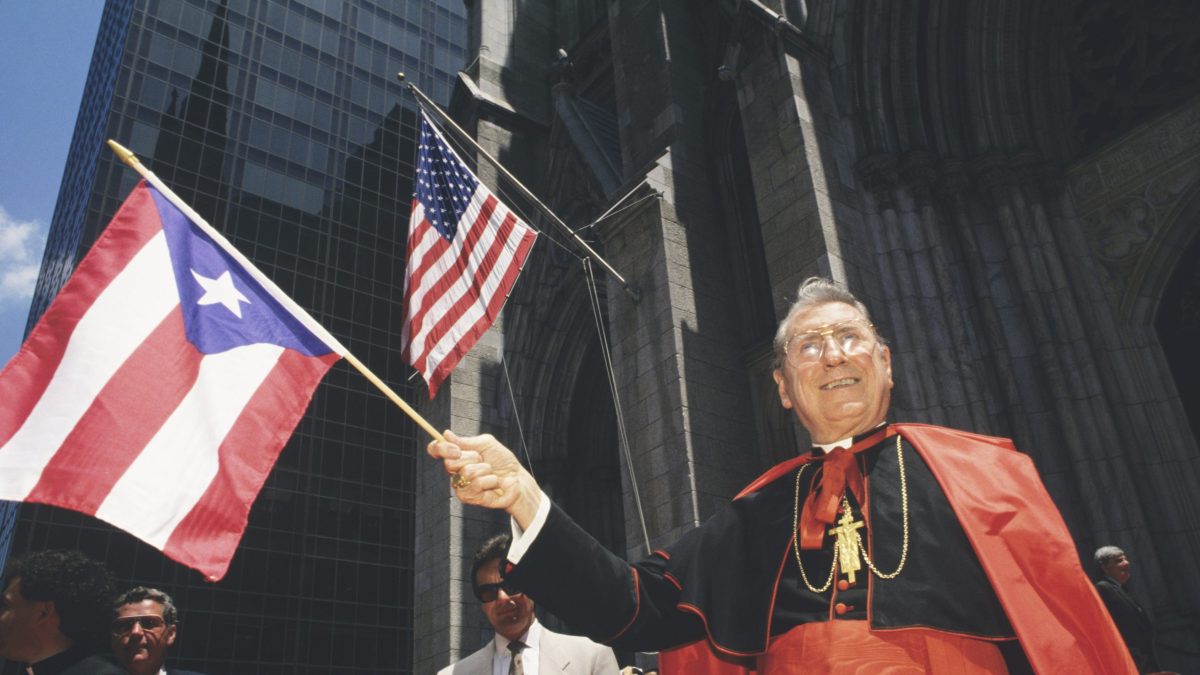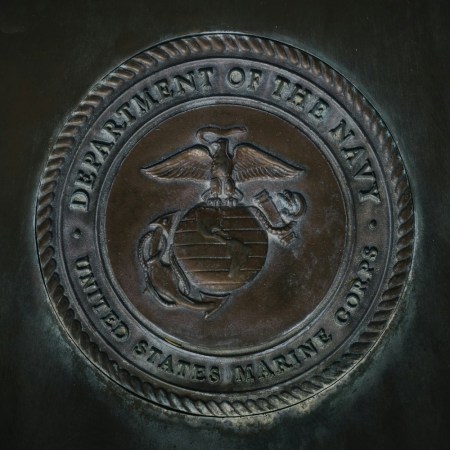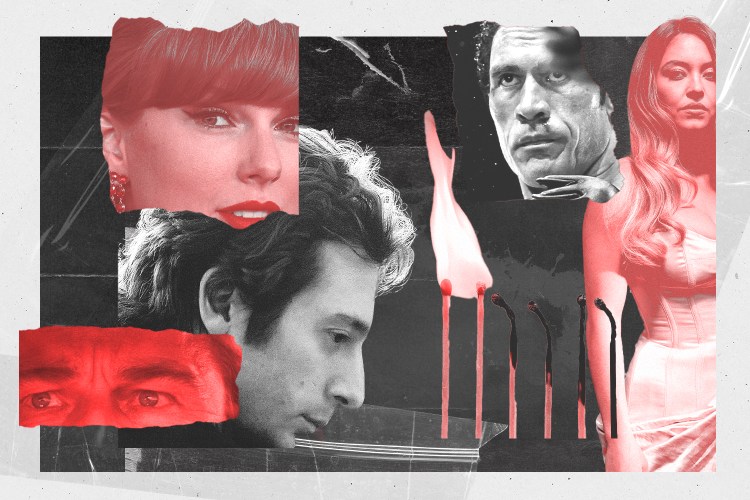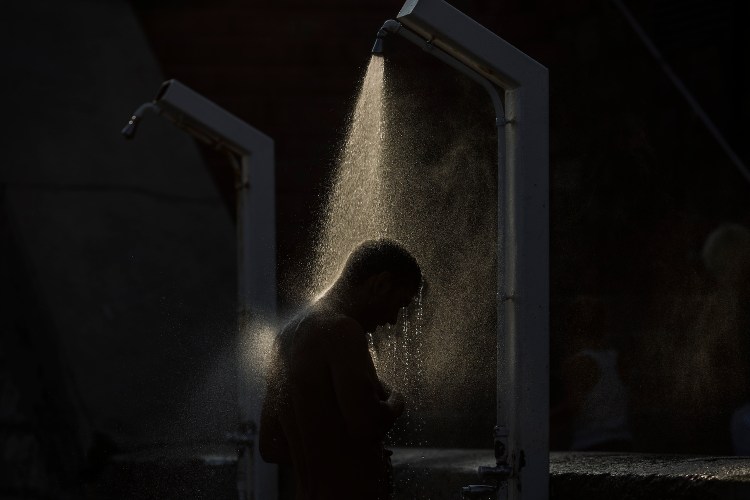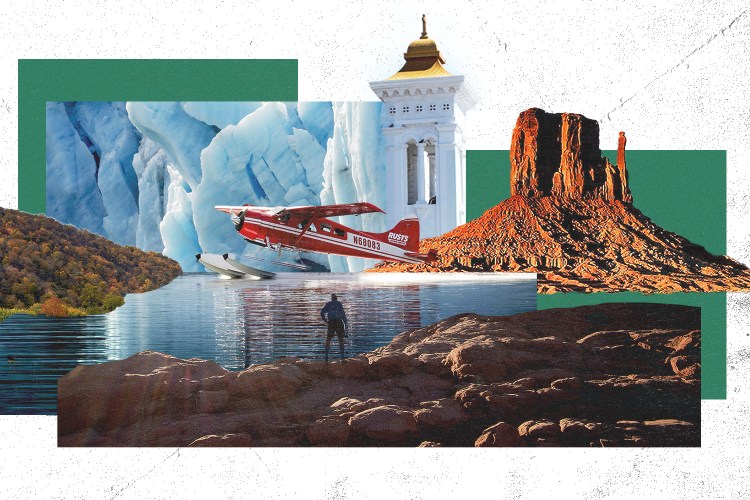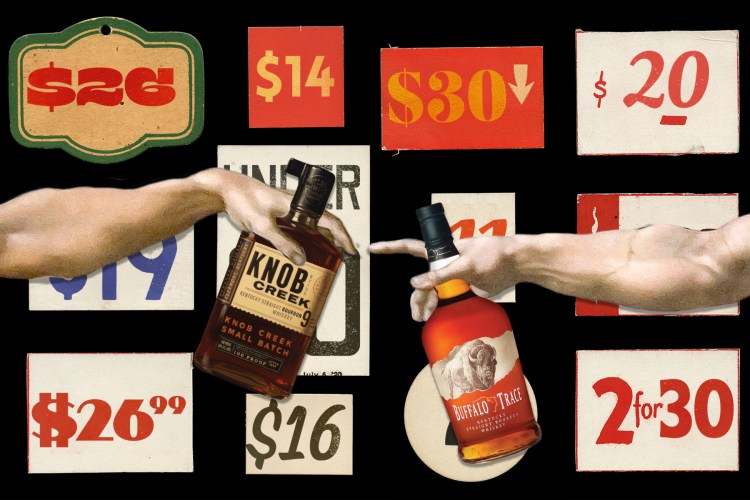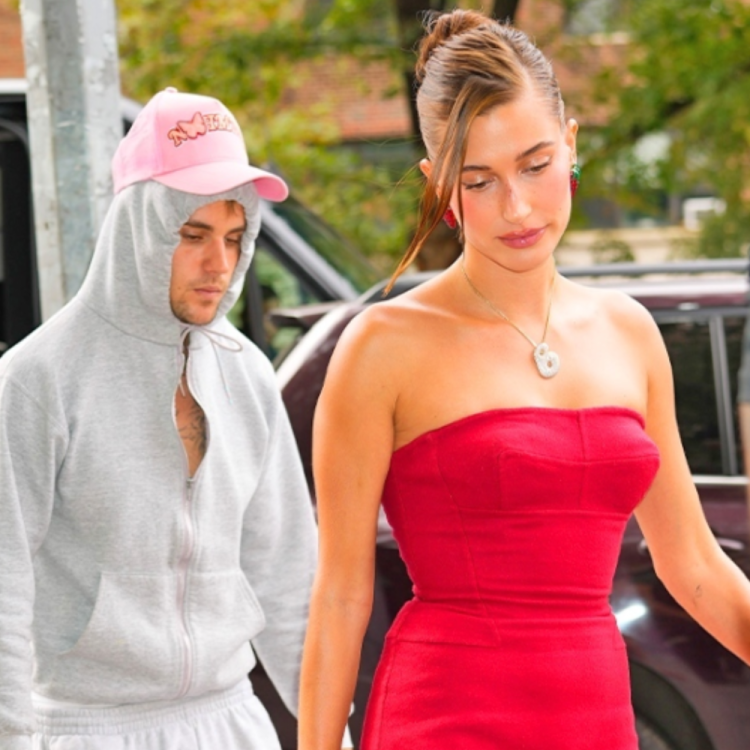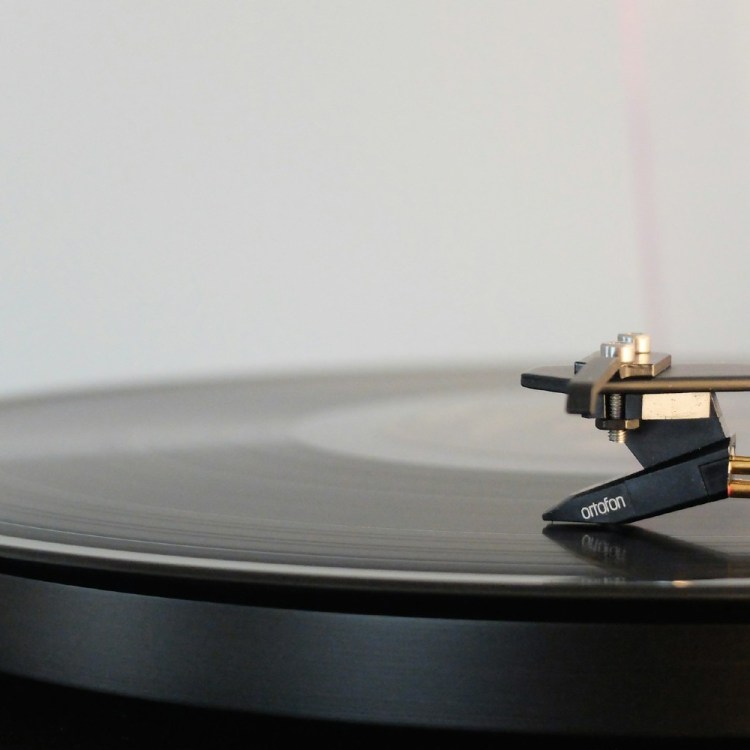A series of islands far from the mainland. Most Americans know the islands and their people are connected to the U.S. but aren’t quite certain exactly how. Then a disaster strikes—which kills thousands. The moment is tragic, but it marks a turning point in the islands’ history, one that ultimately leads to U.S. statehood.
That, of course, is the story of Hawaii, as over 2,400 deaths occurred at Pearl Harbor in 1941 but the U.S. territory didn’t become a state until 1959.
Hurricane Maria hit Puerto Rico in 2017, with 150 mile-per-hour winds knocking out 100 percent of the main island’s power. Deaths resulting from the catastrophe have been estimated at nearly 3,000. Soon after the disaster, I was working on an article on Puerto Rico’s oversized impact on baseball. I wound up getting in touch with Edwin Fernández, co-editor of Puerto Rico and Baseball: 60 Biographies. He was in San Juan and gave a succinct summary of the isolation and general struggle he’d experienced: “No electricity, no Internet, no cable TV.” (Sadly, Edwin passed earlier this year and missed seeing Boston’s Alex Cora become the first Puerto Rican to manage a World Series winner.)
And this tragedy got more and more people discussing Puerto Rico and its current, halfway status: A part of America, yet in so many ways removed from it.
On the anniversary of Christopher Columbus’s November 19, 1493 landing on Borinquen, here’s a brief look at what it means to seek statehood, both historically and today.
Pursuing the Pacific
In the 19th century, America fully embraced its Manifest Destiny. Sometimes we used the checkbook: The Louisiana Purchase brought us the land that would eventually become the states of Louisiana (obviously), Missouri, Arkansas, Iowa, North Dakota, South Dakota, Nebraska, and Oklahoma plus chunks of Kansas, Colorado, Wyoming, Montana, and Minnesota. Sometimes the acquisition required more coercion: The Mexican-American War acquired much of New Mexico, Utah, Nevada, Arizona, California, Texas, Colorado, and Arizona, which became our 48th state in 1912. At last, we stretched from sea to shining sea.
Then we kept going.
Two Late Additions
1959 saw both Alaska and Hawaii become states. Neither was exactly rushed to statehood. Alaska had been purchased from Russia in 1867. The first statehood bill for the remote territory wasn’t even presented until 1916. Obstacles included its geographic isolation from the rest of the country and a general lack of people. (This would be changed by the discovery of gold and oil, though even now Alaska’s population stands at less than 740,000.) For its part, Hawaii had been its own kingdom but the queen was forced to abdicate, leading to annexation by the U.S. in 1898.
A New Standard for States
During World War II, it was feared Japan might seize both territories, providing a superb beachhead for additional attacks on America. It suddenly became pressing to guarantee they were firmly in Americans hands. (And yes, this is the political equivalent of ignoring your significant other until someone else notices them.) Thus it led to America admitting two new states decidedly outside the Manifest Destiny vision of our country. Alaska is 500 miles away from the continental U.S. at its closest point. Hawaii is more than 2,000 miles from California, a distance similar to the epic drive from Seattle to Anchorage.
This is all to say that America has already made states out of places both more distant and less populated than Puerto Rico, which is less than 1,000 miles from Miami and has more than 3.3 million residents (which would make it the 30th largest state by population). It is by far the largest of the U.S. territories that haven’t achieved statehood—the District of Columbia, Guam, and the U.S. Virgin Islands have less than one million people. It also stacks up pretty respectably to the current 50 geographically, as Puerto Rico is larger than Rhode Island and Delaware. Puerto Rico has a rich, lengthy history—Borinquen had been already inhabited a thousand years before Colombus. There’s even a significant military base: Fort Buchanan, which bills itself as the “Sentinel of the Caribbean.”
Okay, so based on past inductees, Puerto Rico’s a very credible candidate for statehood. Here are reasons why some Puerto Ricans want it to be a state, others don’t, and the obstacles to making it happen.
Support for Statehood
Since 1952, Puerto Rico has been a commonwealth. Puerto Ricans are U.S. citizens, but can’t vote for president and have no voting representatives in Congress. Indeed, they only have a single rep of the non-voting variety. The result is they are a part of the U.S. that has no direct say in how the U.S. is run. Lyndon Johnson is reputed to have said, “A man without a vote is a man without protection.” By that logic, Puerto Rico is defenseless.
That said, it could be worse. Being a U.S. territory does not automatically convey full rights and citizenship. Despite having the word “American” right in the name, American Samoans are merely U.S. nationals (meaning they cannot vote but can—conveniently—pay taxes), not U.S. citizens. A group of American Samoans are currently suing in an attempt to change this.
This issue of citizenship in general has been repeatedly thrust into the headlines recently. When the Saudi journalist Jamal Khashoggi first vanished this year, President Trump made a point of noting he was not an “American citizen.” (An employee of the Washington Post, Khashoggi was a U.S. resident living in the United States on an O visa reserved for individuals of “extraordinary ability and achievement.” He also has three children who are American citizens.) Beyond this, Trump has threatened to revoke birthright citizenship by executive order, meaning birth in the U.S. will no longer automatically make a child a citizen. While virtually the entire legal community regardless of political affiliation believe this violates the 14th amendment and is thus unconstitutional, it still creates an incentive to become a state and eliminate any potential legal anxieties.
Ricardo Rosselló, the governor of Puerto Rico, has been aggressively championing statehood. He has written a letter to letter to Trump advocating for it and declared: “I think the case has essentially been made to the world in the aftermath of Maria. The truth of the matter is we’ve been treated like second-class citizens.”
There is quite a bit of truth to that statement historically. The U.S. acquired Puerto Rico as a territory after Spanish-American War of 1898, along with the Philippines and Cuba. However, Puerto Ricans didn’t get U.S. citizenship until 1917. (While the timing was a little suspicious since the U.S. was a month from entering World War I, it wasn’t just a tactic to conscript Puerto Ricans into the military, since U.S. residents in general were already draft eligible.) And it wasn’t until 1947 that Congress allowed Puerto Ricans to elect their governors by popular vote.
Some action has been taken in an attempt to make statehood a reality. Rep. Jenniffer González-Colón, Puerto Rico’s nonvoting representative in the U.S House of Representatives, has filed a bill cosponsored by 21 Democrats and 14 Republicans. One of the sponsors is Puerto Rican-born Rep. José E. Serrano. Now a congressman from New York, he states Puerto Ricans should “have the same rights and privileges I have living in New York.”
There are, of course, real implications to lacking a say in federal legislation. One of the final causes embraced by the late Senator John McCain was getting the Jones Act waived for Puerto Rico. Passed in 1920, it restricts the ability of foreign ships to go to U.S. ports. This hits Puerto Rico particularly hard since it’s not as if companies can instead drive in their goods. McCain blasted it as an “antiquated, protectionist law that has driven up costs and crippled Puerto Rico’s economy.” McCain was a somewhat unlikely champion of this measure—Arizona isn’t known for its ports. But with no members of the Senate from Puerto Rico, the battle was left to him.
Most Puerto Ricans seem to have been won over by these arguments. A 2017 referendum in Puerto Rico found overwhelming support for statehood, taking 97 percent of the vote.
Stop Statehood
It’s not unanimous, however. Indeed, not even every individual who’s served as governor backs it. Former governor Aníbal Salvador Acevedo-Vilá wrote a 2018 editorial titled, “The fraudulent case of Puerto Rican statehood.” He declared, “For economic, identity and cultural reasons, statehood is a bad proposition for both Puerto Rico and the United States, and Puerto Ricans know that.”
With the exception of those working for the federal government, Puerto Ricans currently do not pay federal income taxes. It’s not as if life is tax-free, however—they are responsible for Social Security, Medicare, and other payroll taxes. (They’re better off than Washington, D.C., which is similarly denied representation but does pay federal income taxes.)
The identity and cultural issues are more complex. Sometimes language is invoked and the argument made that Puerto Rico speaks Spanish so how could it mesh together with the English-speaking other states? However, the United States has no official language. That’s not to say this wouldn’t be an issue for some of those voting on the matter, but it doesn’t have to be.
Culturally, there would potentially be changes. Puerto Rico has had remarkable athletic successes, often against the United States. In 2004, the Puerto Rican men’s basketball team defeated the U.S. squad at the Olympics, despite the American roster including LeBron James, Dwyane Wade, and Tim Duncan. Similarly, the Puerto Rican men’s baseball team eliminated the U.S. from the World Baseball Classic in 2013.
Would Puerto Rico lose its ability to offer these standalone teams? It’s worth noting one person unconcerned with this issue is arguably the greatest Puerto Rican athlete alive.
Baseball Hall of Famer Ivan Rodriguez may be the finest defensive catcher ever to take the field. (See that terrifying arm above.) Pudge believes in statehood strongly enough he joined the Puerto Rico Statehood Commission.
Much of Acevedo-Vilá’s piece focused on denouncing the 2017 vote. He noted that the vast majority of Puerto Ricans simply didn’t participate. (Roughly a quarter took part.) He argued that was proof of a massive boycott. Possibly, but it could have simply been Puerto Ricans found it hard to get excited about a vote that would likely lead to nothing in the near future. Quite simply, it is the U.S. federal government, and it alone, that will determine if Puerto Rico becomes a state. And, frankly, the odds of statehood are not in its favor.
Making a State
Two-thirds of both the Senate and the House need to approve a new state. Then the President needs to sign on too. Needless to say, this requires a good amount of bipartisan support and that ain’t exactly been abundant recently. Puerto Rico is unlikely to be an exception for reasons including:
—Sacrificing Seats
Puerto Rico would add two Senators to the United States Senate, bringing the total to 102. The House of Representatives would stay at 435. As a state, Puerto Rico would rank just ahead of Iowa in population. Iowa has four House members. Presumably, Puerto Rico would get at least that many. Four for Puerto Rico means four states lose one of theirs. Meaning a few members need to muse, “Do I really want to vote myself out of a job?”
—The Pull of Party
When Missouri sought to join the U.S. as a slave state in 1819, an outcry erupted because it would disrupt the balance between states that allowed slavery and those that didn’t. (They were tied 11-11.) Ultimately, Maine was also admitted as a free state to maintain the equilibrium.
When Hawaii tried to become a state well over a hundred years later, things were oddly similar. Southern Democratic Senators were opposed, fearing that its multiracial population would elect officials who supported civil rights. Ultimately, an influx of more liberal northern Democrats in 1958 gave just enough momentum for Hawaii statehood. It helped that Hawaii was balanced by Alaska, which was seen as being far more conservative. (After all, large tracts of the state were reserved for the military.) 14 Southern Democrats still opposed Hawaii’s admission.
It’s generally believed Puerto Rico would vote Democratic. Puerto Ricans in Florida favor Democrats over Republicans by a wide margin. One pre-2018 election poll of 1,000 of the 1.2 million Floridian voters of Puerto Rican descent found 57 percent were inclined to favor a Democrat, 36 neutral, and just 7 prone to go GOP. In an era when Republican Senate Majority Leader Mitch McConnell kept a Supreme Court seat empty for 422 days, it’s hard to imagine him embracing two likely votes for the other team.
Of course, it’s possible to oppose statehood for Puerto Rico for reasons unrelated to party allegiance. It has an undeniably heavy debt load—in 2015 its $71.1 billion in total debt exceeded its gross domestic product ($69.6 billion). Yet this hardly makes it unique. There are states both traditionally conservative and liberal with questionable financials. New Jersey faces a staggering pension crisis. Kansas has basically bankrupted itself, despite desperately slashing spending. Many states take far more from the federal government than they contribute. In particular, South Carolina has proven remarkably effective at collecting federal money through a combination of government programs, grants, contracts, and entitlement spending. A 2014 analysis by WalletHub found the Palmetto State received $7.87 in federal monies for every dollar its citizens paid in income taxes.
Yet these states are all still vital parts of the U.S.A.
This is to say that it’s highly unlikely, yet theoretically possible, to get Puerto Rican statehood through Congress. But when it reaches the desk of the current President, all bets are off.
The Trump Card
It’s no secret that Donald Trump takes a highly personal approach to governing. Witness his decision to rely on his personal twitter account in office, so that one moment he’s feuding with the French President (“MAKE FRANCE GREAT AGAIN!”) and the next he’s noting he hosted an event for “Diwali, the Hindu Festival of Lights, in the Roosevelt Room.” Periodically the presidency is forgotten altogether for a few tweets as, for instance, he resumes insulting Alec Baldwin over Saturday Night Live: “Bring back Darrell Hammond, much funnier and a far greater talent!”
Puerto Rico seems to have hit Trump’s sweet spot. As a Republican, he was already disinclined to do anything he suspects might help the Democrats. Yet his opposition to statehood is still unexpectedly strong. After all, this is an issue it would be very easy to avoid expressing an opinion on altogether. Making it odd that during an interview with Geraldo Rivera, Trump deemed Puerto Rican statehood an “absolute no.” (Bonus weirdness: He told this to a man who describes himself as a “proud JewRican” and has tweeted “#PuertoRico needs statehood-full representation-equality.”)
Trump’s stated reason for the unqualified rejection: “With the mayor of San Juan as bad as she is… Puerto Rico shouldn’t be talking about statehood until they get some people that really know what they’re doing.”
This is a reference to Mayor Carmen Yulín Cruz, who specifically blamed the Trump administration for many of the deaths experienced during Maria: “It’s 2,975 people and they’re still calling it an estimate—2,975 people that will never see the light of day and many of them died because of what was done by the administration and that was silently approved by most of the political class in Puerto Rico.”
Which in turn inspired Trump to tweet (ahead of Hurricane Florence): “We got A Pluses for our recent hurricane work in Texas and Florida (and did an unappreciated great job in Puerto Rico, even though an inaccessible island with very poor electricity and a totally incompetent Mayor of San Juan). We are ready for the big one that is coming!”
Below, a surreal yet unforgettable moment during Hurricane Maria, as President Trump distributed paper towels:
The Big Picture
Admitting/rejecting a state based on its current leadership and/or political allegiances ignores how things can change. It was once a radical notion to admit a cluster of islands in the Pacific. Today, it’s shocking to remember that when Pearl Harbor happened, Hawaii wasn’t yet a state.
The recent confirmation of Brett Kavanaugh to the Supreme Court is an example of a decision with implications well beyond the current election cycle. Yet every justice ultimately sees their time on the court end. (The record is 36 years by William O. Douglas.) Statehood is a truly long-term choice. Ultimately those deciding the issue for Puerto Rico—whether voters on the islands, the members of Congress, or the President—should be thinking less of this moment than decades and centuries from now. And whatever happens, may we remember the words of actress and first-generation Puerto Rican-American Rosie Perez: “You may not be born in Puerto Rico, but Puerto Rican is definitely born in you.”
This article appeared in an InsideHook newsletter. Sign up for free to get more on travel, wellness, style, drinking, and culture.
